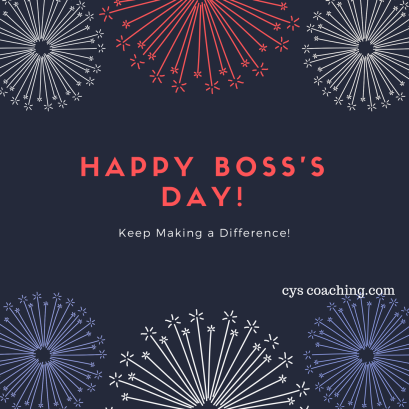Tesla just fired between 400 – 700 workers; while they won’t divulge the exact number, the reason is surprising. Workers were let go, at all levels, due to poor performance. According to their announcement, “As with any company, especially one of over 33,000 employees, performance reviews also occasionally result in employee departures. Tesla is continuing to grow and hire new employees around the world” (Business Insider, 2017). I’ve read it’s layoffs, other sources say it’s financial – whatever the reason, performance is involved somehow.

If you think of it this way, what leads them to keep workers, versus letting them go? It comes down to value – who performs, well – and meets benchmarks, as well as who has a positive attitude; who ‘shows up’ every day vs who shows up (just there). Companies won’t keep a worker if they are low-paying if their work and attitude is not there. Tesla is working on Model 3, to which they are behind in production; if the former is true, then that many would no be let go. In fact, there were workers who got bonuses.
There are other factors that contribute, like EOE and other laws, but they do look at performance and future success. This is why it is reliant on individual workers to daily check their both their attitude and their contributions to their work; it’s about utilizing the skills you were hired for, ensuring timeliness and quality of the work, and being part of the team.
It’s not too late to track your performance: are you arriving on time, as well as your lunch/breaks; are you managing your time; are you ‘raising your hand’ to help your boss or teammates out; do you come in with a smile of a frown; are you using your critical thinking skills and contributing with new ideas and solutions. These are just a few of what leaders look for and why they hire; these are also what puts someone on their radar, and in a good way.
I hope the company let them go well, i.e. severance and/or career services to help them find another employment. But, my real hope is that these workers had ‘Plan B’ in place – this would get them a clear path to their next step. My question: are you prepared? Do you have Plan B in place? If not, let’s talk!
Committed to Your Success Coaching & Consulting focuses on workplace happiness and organizational success. If you need help gaining clarity on your business or career goals, why not get some help – stop the struggle and call today to get started! http://www.cyscoaching.com or barbara@cyscoaching.com
Happy Boss's Day – Are You Deserving of the Recognition?

Today is Boss’s Day – the day employees have the chance to recognize their leader. But, how many are deserving of this recognition? I’ve already talked to two people who had no clue of what this day mens, as they did not get any kudos, or thanks, by their employees.
Leaders need to ask themselves if they are truly deserving to be recognized for the presence they convey, the clarity they provide on work goals, the inspiration and motivation to perform at a high level, all while being the caring ‘cheerleader’ and mentor to those who report to them. These attributes are what great, no effective leaders convey. These are who people want to work for and follow.
I hope you’re getting the recognition you deserve – that your people will see the goodness and effectiveness you are exuding. Own the role but be the people person they need you to be. You are valued but only if you are truly deserving. Leadership should be worked on daily – consistency is what breeds mastery. Enjoy your day!
Committed to Your Success Coaching & Consulting focuses on workplace happiness and organizational success. If you need help gaining clarity on your business or career goals, why not get some help – stop the struggle and call today to get started! http://www.cyscoaching.com or barbara@cyscoaching.com
Inspiration Can Be Found Everywhere
I absolutely love motivational/inspirational quotes, and have quite a collection of them. They raise the emotional level to keep focused on the positive thoughts, not negative ones. To me, they make you want to do and be more.
I found this great find as it is a inspirational journal – each page has a different quote on it, plus room to write on. I can either write about the meaning of the quote, as well as how it can inspire me to be better or to act on what I found the meaning is.

What a great find – to have a quote and a journal in one! As we go on during the (often) drudgery of our day, there are times that we need help to keep positive and inspired to keep focused on our tasks. The quotes are one way; the journal is another as you can write about events in your day, make your to-do lists or, better yet, work on your gratitude. These are easy ways to brain-dump and make sense of things to keep you going, when you may feel like saying ‘screw it.’
There are many places to find inspirational quotes: in books, on the web (just google it and see how many), social media (Facebook, Pinterest) – even homegoods and clothing has quotes on them. Whichever way you choose, find them. Start a collection of them. Make your own (Canva). Keep the inspiration around you and watch how much more positive and productive you are. As Earl Nightingale says, “We become what we think about.”
Committed to Your Success Coaching & Consulting focuses on workplace happiness and organizational success. If you need help gaining clarity on your business or career goals, why not get some help – stop the struggle and call today to get started! http://www.cyscoaching.com or barbara@cyscoaching.com
Picking Back Up After a Career Set-back
As a beloved Pittsburgh Steelers fan all my life, yesterday was a brutal day for us; we lost to a mediocre team and our quarterback threw five interceptions – yes, five.
The media were really quick to announce how poor he was but their scathing headlines, of course, elicited many nasty comments about he needs to retire and what a has-been he is (none of which are true). In watching his interview afterwards, you could see that he was disappointed in himself, and his performance, but there are lessons we can learn from this, which are applicable to not just your career but your life. Picking yourself back up after set-back is a necessity so it does not overtake you and keep you down.

The ‘sting’ will be felt but only you get to determine how long it will linger. I look at professional athletes who are in the limelight, vulnerable for all to see and critique. How scary does that seem? Watching how they handle their setbacks gives hope for us plain folk:
- Admit your mistake – when you know you’ve made an error, don’t try to hide it or become defensive as this only makes the situation worse, plus it destroys trust in you and your integrity. Our quarterback said he did not play well, not giving excuses. Own your stuff – people will respect you more
- Have a way to rectify it – if it wronged someone, or the error affected others (or your work), then what actions will you take to make it correct (if possible) and ensure it doesn’t happen again. Determine to improve in that area, whatever that will be. Now, the QB on my team can’t correct what he did yesterday but he certainly can go and practice harder, as well as be in on the game plan for next week (he was not the only one involved).
- Say you’re sorry – people are willing to be more forgiving if they hear ‘I’m sorry’; it’s been found that doctor’s are less prone to getting sued for a mistake, even if it resulted in a death, if the family hears an apology. I think we all want an acknowledgement.
- Let it go, meaning -DON’T BEAT YOURSELF UP! It’s easy to berate yourself, or feel sorry for yourself, which only affects the self-esteem and confidence levels. Cutting yourself some slack and that you’re human will lessen the blow. Focus on all the positives you have done; our quarterback has two Super Bowl wins/rings to speak for.
- Learn from the mistake and move on – we do need to review the situation and see what our part was, and what could have averted the setback. Mistakes keep mistakes if we don’t look at the ‘lessons learned.’ This is how progress is made; as Confucius said, “Our greatest is not in ever failing, but in rising every time we fall.”
Our quarterback will rebound after this, the team is rallying around him, and the coaches will ensure better preparation for Sunday’s game. He will rebound after this setback. Now, some of Steeler nation may not be but, hey, that’s their issue (they will be hard until he wins). Just as our QB will bounce back, you can, too. As Winston Churchill said, “Success is not final, failure is not final; it is the courage to continue that counts.”
Committed to Your Success Coaching & Consulting focuses on workplace happiness and organizational success. If you need help gaining clarity on your business or career goals, why not get some help – stop the struggle and call today to get started! http://www.cyscoaching.com or barbara@cyscoaching.com
Are You Managing Your Career or is It Managing You?
In this day and age of careers, a great question to ask yourself is: “Are you managing your career or is it managing you?” Often, it seems that most people today (in history?) scramble and find a job; after all, isn’t that what we’re told? Making money is the goal in order to make our way in the world, which entails work.

A question for you – were you ever taught in school of what a career entails and how to go about deciding what it is that you wanted to do for a good portion of your life? Personally, no. I don’t recall one teacher who had us research careers and then how to go about finding the path that would lead me to finding fulfilling work. Now I had made a decision on a path but, as life circumstances get in the way, the college I was going to attend had teachers who decided that they wanted more money and went on strike. This changed my whole path.
I found it was hit and miss in courses I took, not knowing what career I wanted to be in. So, from pushing by my mother and a desire to go away, I transferred to an out-of-state university and a new college path. Looking back, I only knew how exciting an advisor I had made this new major sound but, unfortunately for me, it never felt aligned with, even though I had successes in it. Until I started my own business.
My story is not uncommon; my office is near a major university so I get students who come in struggling with classes or feeling unhappy with their current state. Many chose their major due to a parental influence, or it sounded good (or friends who were going to pursue the same degree) but they now find themselves unfocused, having difficulty waking up to go to class and, sometimes, failing. I feel so sad for those who find themselves in this state who are about ready to graduate.
Sadder yet is that these stories are common among those already in the workplace, who find themselves in a job they don’t like or can’ figure out how to navigate to be successful. They often don’t like the work they do, finding it routine or boring; others want to move into a new role or up the ladder but feel there are no opportunities to do so; while another group can’t stand the people they work with or the overall culture of their department (or organization).
These examples are a big part of why our current engagement level continues to stay around 33% (Gallop, September 2017). People feel frustrated with their work, with their boss, with coworkers, with the time they have to spend in work, with not feeling they are paid enough, and not having enough time for themselves and their family. Essentially, they are allowing their career to manage them and their life.
Is it possible for one to manage their career? I emphatically say YES! There are many components that go into this but, once started, self-management becomes easier. Here are some components to consider:
- Self-assessment/awareness: this entail fully owning your skills, abilities, aptitudes, values, beliefs, expectations, interests, to name a few. This helps you to know what you have to offer and your motivation to best manage how your career path goes
- Awareness of your preferred work environment – not everyone aligns with how things are run in a business, no matter the size. Knowing the type of culture, i.e. the environment, values, and the way things are run, will lead to having more satisfaction. Knowing yourself and how you act in situations is important to finding them; as an example, I thrive in busier and more active environments, where I can move around and interact with others so an organization that prohibits this type of movement will not work for me – this I know for sure
- Goal setting is a critical component – where do you want to go in your career? Is it to be a CEO or VP, or other position? Perhaps it’s an industry you want to work in? Having that end-goal in front of you will lead you to investigate how you will go about getting there
- Good actionable steps – these are the daily actions you will take as you work on the identified goals. This can include: working on a particular skill to get better at it, raising your hand to take on more challenging work so you get noticed for upward mobility, networking internally to get to know those who can move you up; it also can include ensuring your resume is up to date, looking for those internal opportunities, and working on your personal development.
- Having a clear plan to follow – this means writing all of these steps down, so you can refer back to them frequently. I’ll tell you a story of a young, late twenty-something, gentleman who I was helping with his interviewing skills; he was going after a very high-level position with a retail giant. I was amazed at how far he was in his career at such a young age. He said that he started working for this company when he was 18 but knew that he wanted to move up every two years; he learned everything he could about the job he was doing in the first year, and then, in the second, he learned all he could about the position he was going for – he reached all his goals (and did get the position he was going for). He had a clear plan and followed it.
Managing your career is not only empowering but your responsibility. Having control over your work-life will give you more control over you life overall; you will feel more empowered, more focused, and more motivated to go after what you say you want. I think identifying resources you may need is another part of the plan, i.e. a mentor, hiring a coach, as relying on others isn’t a bad thing in some situations. Don’t allow your career to manage you – take back control and get in charge of your career; you will be glad you did.
Committed to Your Success Coaching & Consulting focuses on workplace happiness and organizational success. If you need help gaining clarity on your business or career goals, why not get some help – stop the struggle and call today to get started! http://www.cyscoaching.com or barbara@cyscoaching.com

